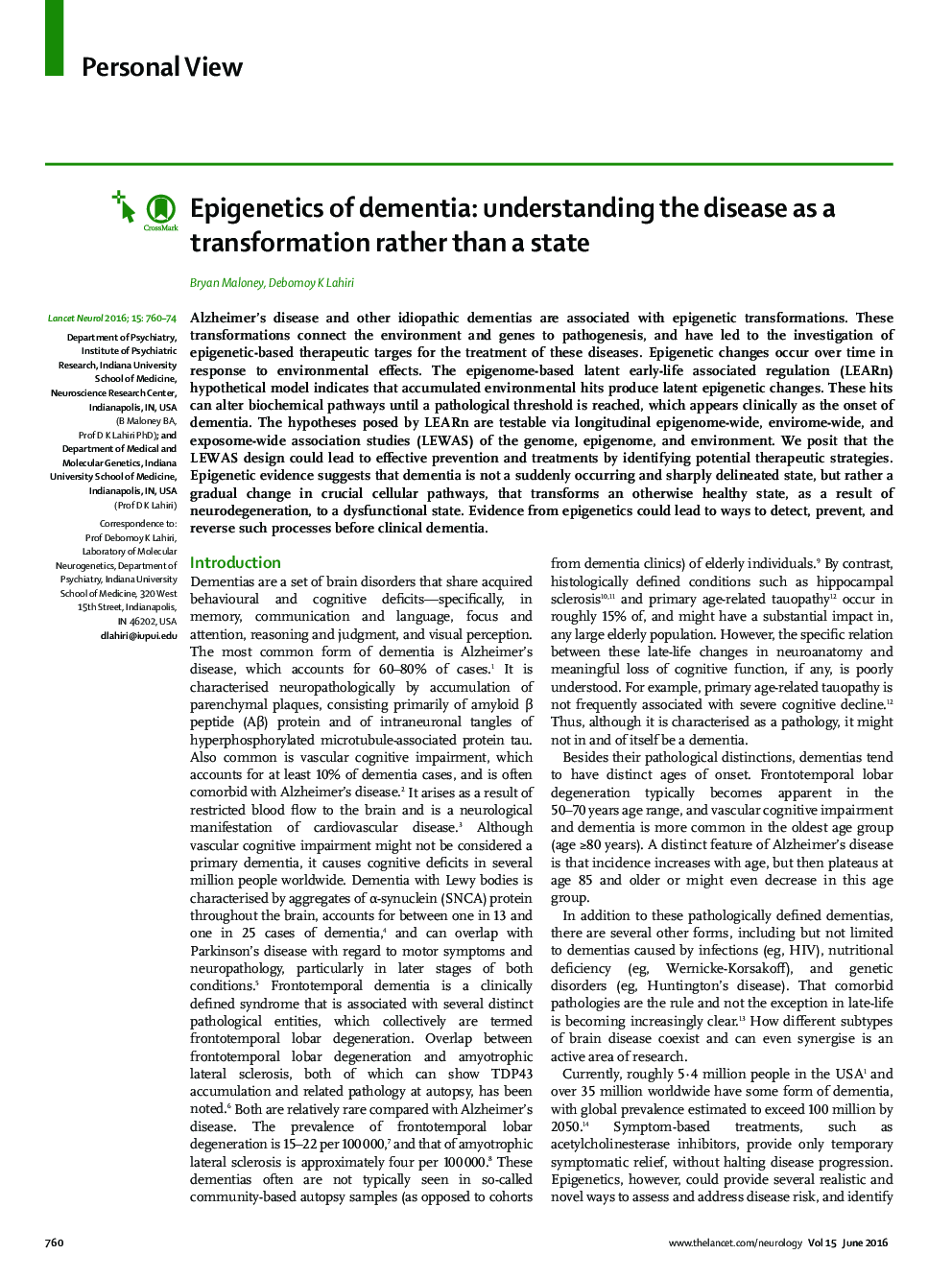| Article ID | Journal | Published Year | Pages | File Type |
|---|---|---|---|---|
| 3066458 | The Lancet Neurology | 2016 | 15 Pages |
SummaryAlzheimer's disease and other idiopathic dementias are associated with epigenetic transformations. These transformations connect the environment and genes to pathogenesis, and have led to the investigation of epigenetic-based therapeutic targes for the treatment of these diseases. Epigenetic changes occur over time in response to environmental effects. The epigenome-based latent early-life associated regulation (LEARn) hypothetical model indicates that accumulated environmental hits produce latent epigenetic changes. These hits can alter biochemical pathways until a pathological threshold is reached, which appears clinically as the onset of dementia. The hypotheses posed by LEARn are testable via longitudinal epigenome-wide, envirome-wide, and exposome-wide association studies (LEWAS) of the genome, epigenome, and environment. We posit that the LEWAS design could lead to effective prevention and treatments by identifying potential therapeutic strategies. Epigenetic evidence suggests that dementia is not a suddenly occurring and sharply delineated state, but rather a gradual change in crucial cellular pathways, that transforms an otherwise healthy state, as a result of neurodegeneration, to a dysfunctional state. Evidence from epigenetics could lead to ways to detect, prevent, and reverse such processes before clinical dementia.
